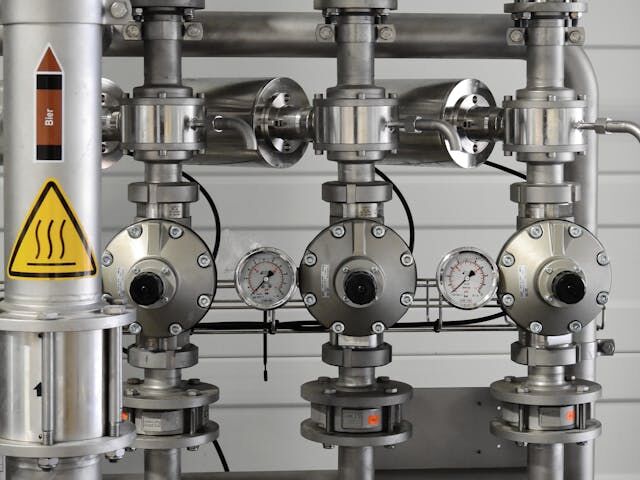
Key Takeaways:
Routine plumbing upkeep can help avoid expensive repairs and water-related damage.
Knowing how to spot early signs of plumbing issues can save time and money.
Simple DIY tips can help maintain your plumbing system efficiently.
Professional inspections are crucial for comprehensive plumbing care.
Understanding the Importance of Plumbing Maintenance
Plumbing is integral to any home, delivering clean water and removing waste. Yet, it's often overlooked until a problem arises. Routine maintenance can avoid expensive repairs and water damage, keeping your plumbing system functioning well throughout the year. Routine checks and simple fixes can catch minor issues before they escalate into costly problems. New Canadian Drain & Plumbing emphasizes the importance of preventative care to keep your plumbing in top shape. By being proactive, you can increase the longevity of your pipes and fixtures, ultimately reducing costs over time.
Signs of Potential Plumbing Problems
Identifying early signs of plumbing problems can save you from significant headaches later on. Familiarize yourself with common indicators that something might be amiss. Dripping faucets, for example, are annoying and can save considerable water over time. Slow drains suggest a blockage that needs attention before completely clogs your pipes. A variation or drop in water pressure may signal an unseen leak or an issue with your water supply. Discolored water is another warning sign, often pointing to rust in your pipes or a problem with your water heater. Promptly addressing these symptoms can prevent more severe damage and expensive repairs.
Simple DIY Plumbing Maintenance Tips
Inspect Pipes Regularly: Routinely check exposed pipes for leaks, corrosion, and signs of wear. It can help you identify minor problems before they turn into significant issues. Pay special attention to the pipes under sinks and in basements.
Clean Drains: Instead of harsh chemical cleaners, use natural solutions like baking soda and vinegar. Pour a half-cup mixture of baking soda and vinegar down your drains, then rinse with hot water. This can help keep your drains clear and prevent blockages.
Check Water Pressure: Using a pressure gauge, ensure your home's water pressure is optimal, typically between 40 and 60 psi. Excessive pressure can damage pipes and appliances, while low pressure can indicate a problem in the system.
The Role of Professional Inspections
While DIY maintenance is beneficial, professional inspections are essential for comprehensive plumbing care. Professionals can spot hidden issues and provide solutions that DIY methods might miss. For instance, an experienced plumber can use advanced tools like cameras to inspect the interior of pipes, uncovering blockages or damage that's not visible from the outside. Regular inspections help maintain your plumbing system's health and extend its lifespan, ensuring everything operates efficiently. Scheduling annual check-ups with a trusted plumber can prevent minor issues from becoming expensive, giving you peace of mind that your plumbing system is in good hands.
Preventative Measures for Long-Term Plumbing Health
Implementing preventative measures can help maintain the integrity of your plumbing system and prevent future issues. Insulating pipes is essential in colder climates, preventing them from freezing and bursting during winter. Furthermore, consider what you are disposing of in the toilet. Non-degradable items like wipes, feminine hygiene products, and certain types of paper towels can cause severe blockages. Put filters in sink and shower drains to trap hair and debris, stopping them from clogging up the pipes. These simple steps can go a long way in safeguarding your plumbing over the long term.
Common Plumbing Myths Debunked
Many misconceptions about plumbing could lead to costly mistakes. For example, it's a common belief that chemical drain cleaners are the best solution for clogs. However, these chemicals can deteriorate your pipes, leading to corrosion and leaks. Another myth is that a leaking faucet is just an annoyance. In reality, even a tiny drip can waste gallons of water over time, often indicating an underlying issue that needs fixing. By debunking these myths, you can make more informed decisions about your plumbing care.
When to Call a Professional Plumber

Knowing when to call a professional is crucial for addressing severe plumbing issues. If you encounter persistent problems like sewer odors, multiple clogged drains, or significant water discoloration, it's time to get expert help. Professionals have the required tools and skills to manage these complex situations proficiently. For example, they can perform hydrojetting to clear out severe blockages or use advanced diagnostic equipment to locate hidden leaks. Attempting to fix these issues alone can often lead to more harm than good, so it's best to rely on skilled professionals to ensure thorough and effective repairs.
Regular plumbing maintenance and vigilance about potential issues can save you time, money, and stress. Incorporate these tips into your routine and partner with professional plumbers when necessary to ensure your home's plumbing system remains in excellent condition for years to come. Homeowners can enjoy a smooth and hassle-free plumbing experience by understanding and implementing these strategies. Regular check-ups, simple DIY maintenance, and timely professional interventions are the keys to a robust plumbing system that stands the test of time.





(0) comments
We welcome your comments
Log In
Post a comment as Guest
Keep it Clean. Please avoid obscene, vulgar, lewd, racist or sexually-oriented language.
PLEASE TURN OFF YOUR CAPS LOCK.
Don't Threaten. Threats of harming another person will not be tolerated.
Be Truthful. Don't knowingly lie about anyone or anything.
Be Nice. No racism, sexism or any sort of -ism that is degrading to another person.
Be Proactive. Use the 'Report' link on each comment to let us know of abusive posts.
Share with Us. We'd love to hear eyewitness accounts, the history behind an article.